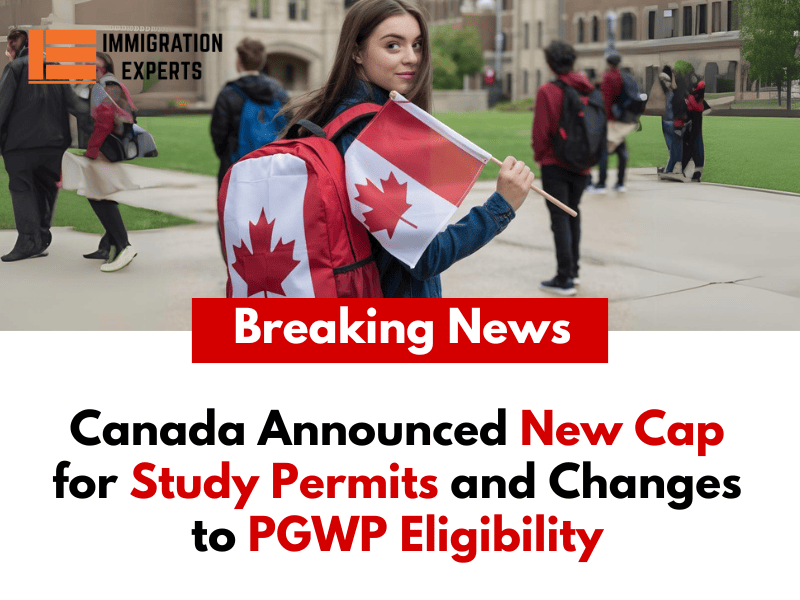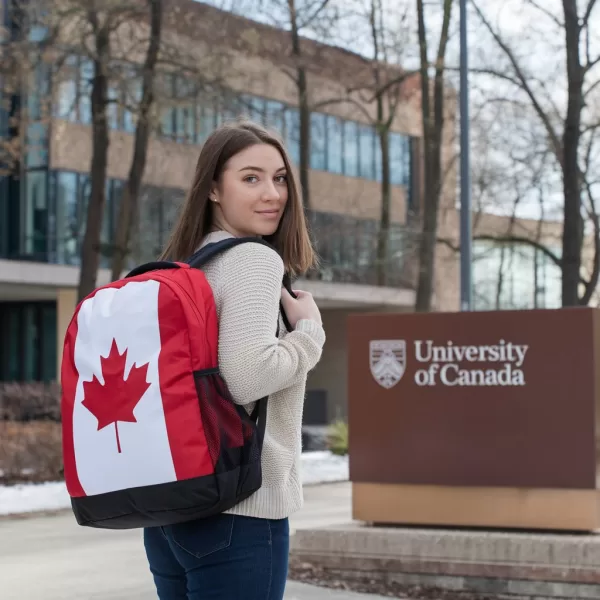051 8439995, 042 35911332

According to Canada’s Immigration Minister Marc Miller, there will be no increase in the cap on admissions for international students.
In particular, only 437,000 study permits are expected to be issued by Immigration, Refugees, and Citizenship Canada (IRCC) in 2025. Comparing this number to the 2024 goal of 485,000 additional study permits, there has been a 10% drop. According to the agency, this cap will remain in place until 2026.
Things You Will Find In This Page
Fewer Study Permits and Stricter Regulations Ahead
The IRCC estimates that over the next four years, this measure will lead to the issuance of 300,000 fewer study permits to overseas students.
The minister provided multiple updates regarding the continuous modifications to Canada’s program for international students.

Miller stated, “The reality is that some individuals will not be able to enter Canada, and some will not be able to remain here.
We need to uphold the integrity of our immigration system; it must be organized and sustainable. As we progress, we will do everything possible to meet this goal and ensure that newcomers have the best chance for success.”
Mandatory Provincial Attestation Letter (PAL) for Master’s and Doctoral Students
It is currently mandatory for master’s and doctoral students to possess a Provincial Attestation Letter (PAL).
Master’s and doctorate students will now be included in the revised quota and will no longer be exempt from this requirement.
The department recognizes these students’ contributions to the Canadian labor market and intends to set aside approximately 12% of the study permit slots for them.
To assist the IRCC in verifying the validity of their applications and controlling the number of study permits granted, PALs were introduced earlier this year for a large number of college and undergraduate students.
Updates to PGWP Eligibility Criteria
New eligibility rules for the Post Graduation Work Permit (PGWP) have been introduced. Starting November 1, university graduates will need to achieve a Canadian Language Benchmark (CLB) score of 7, while college graduates must obtain a CLB score of 5 to qualify for a PGWP.
Miller anticipates these changes will lead to 175,000 fewer PGWPs being granted over the next three years.
Restrictions on Spousal Open Work Permits
Later this year, IRCC will also restrict work permit eligibility to spouses of master’s degree students enrolled in programs lasting at least 16 months. This change is projected to result in 50,000 fewer spousal work permits issued over the next three years.
In a separate move, Spousal Open Work Permits will be limited to the spouses of Canadian citizens or permanent residents who are working in essential sectors, regardless of the international student program.

Impact on the Temporary Foreign Worker Program
Canada’s unemployment rate has been rising since April 2023, increasing by 1.5 percentage points during that period. The overall unemployment rate rose from 6.4% to 6.6%, according to Employment and Social Development Canada (ESDC). In August 2024, there were 1.5 million unemployed individuals, an increase of 60,000 (4.3%) compared to the previous month.
With the actions announced today, the number of temporary residents in Canada with work permits will soon decline.
Alongside Minister Miller, Randy Boissonnault, Minister of Employment, Workforce Development, and Official Languages, stressed that the Temporary Foreign Worker Program (TFWP) ought to be utilized as a last choice and not as a means of replacing Canadian workers or cutting their pay.
In spite of this, Minister Boissonnault emphasized that immigration accounts for 99% of Canada’s economic development, with that percentage predicted to rise to 100% by 2032.
Changes to Temporary and Permanent Resident Levels in Canada
Canada’s immigration system has undergone major modifications this year, introducing multiple new policies.
The first-ever research permit cap was put into effect by the IRCC in January. It was originally intended to be a temporary measure that would last until the end of 2025. Each province government was allotted a certain amount of research permits as part of this quota. The PAL system was also introduced with the research permit cap.
Along with the study permit cap came further limitations on PGWP eligibility, such as limiting Spousal Work Permits to spouses of students enrolled in master’s and PhD programs, with few exceptions, and disqualifying students in college programs with “curriculum licensing agreements.”
In March, Minister Miller announced that the Immigration Levels Plan for 2025-2027 would include temporary resident targets for the first time, as the department aims to lower the number of temporary residents on study or work permits.
Canada has taken additional steps to decrease the number of temporary residents, including:
- Ending the COVID-era policy that allowed visitors to apply for job-supported work permits from within Canada.
- Pausing the processing of Labour Market Impact Assessments (LMIAs) in the low-wage stream of the TFWP for jobs in Census Metropolitan Areas (CMAs) with an unemployment rate of 6% or higher.
- Considering significant changes to the issuance of Post-Graduation Work Permits (PGWPs) for international graduates, tying these permits to educational programs that prepare graduates for employment in in-demand sectors of the Canadian economy.
Minister Miller has also expressed a willingness to review permanent immigration levels in Canada. He noted that while it is essential not to “overcorrect” these levels, the potential changes could be substantial and more than just “cosmetic.”
Stay tuned with us to learn about the upcoming decisions. In the upcoming weeks, more information will be released.
Also Read:
Canada Set to Strengthen Immigration System: Mark MillerCanada Wants to Increase Work Hours for International Students from 20 to 24 – Mark Miller
